Cognitive Development Phonics Worksheets for Ages 4-9
13 filtered results
-
From - To
Unlock your child's full potential with our engaging Cognitive Development Phonics Worksheets, specially designed for kids ages 4-9. These worksheets blend phonics skills with cognitive growth, enhancing critical thinking, problem-solving, and memory through fun activities. Your child will explore the alphabet, letter recognition, and sounds while developing essential cognitive skills that pave the way for successful reading. Each worksheet supports learning with colorful illustrations and interactive exercises that captivate young minds. Perfect for at-home learning or classroom use, these phonics worksheets make learning enjoyable and effective, setting a strong foundation for a lifelong love of reading and learning. Start enriching your child's education today!
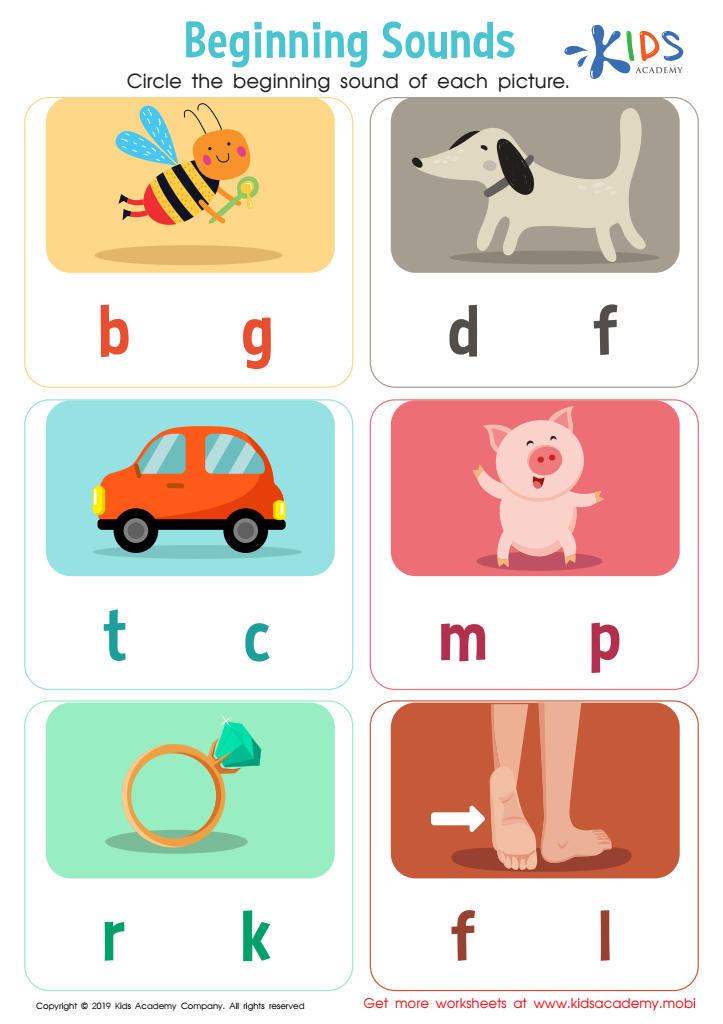

Beginning Sounds Worksheet
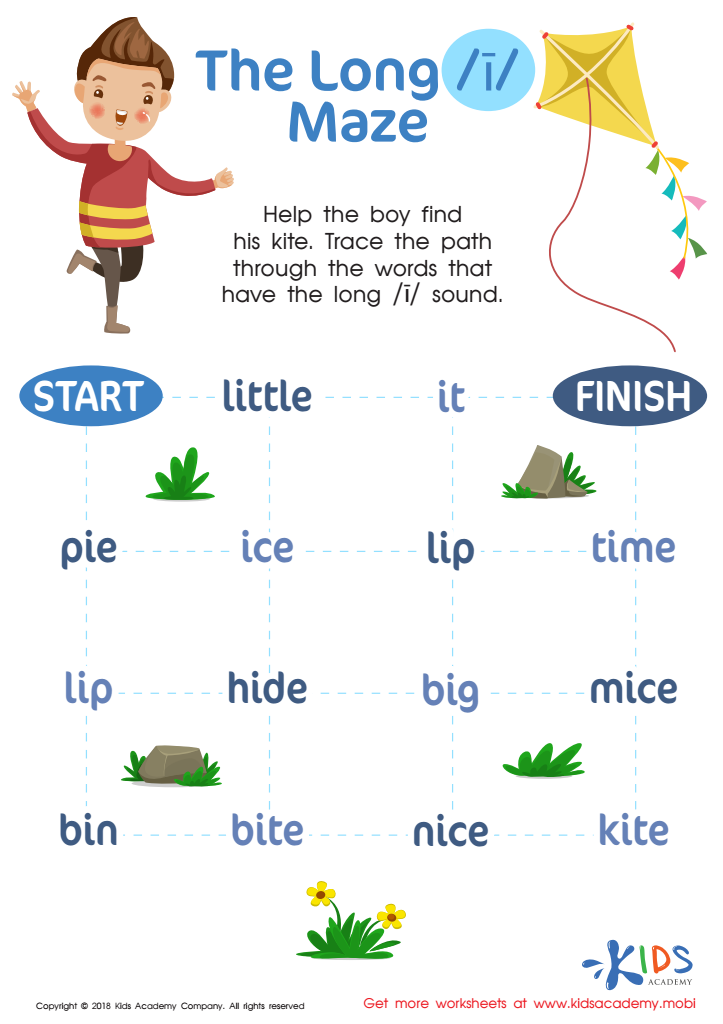

The Long I Maze Reading Worksheet


Rhymes in Poems Worksheet
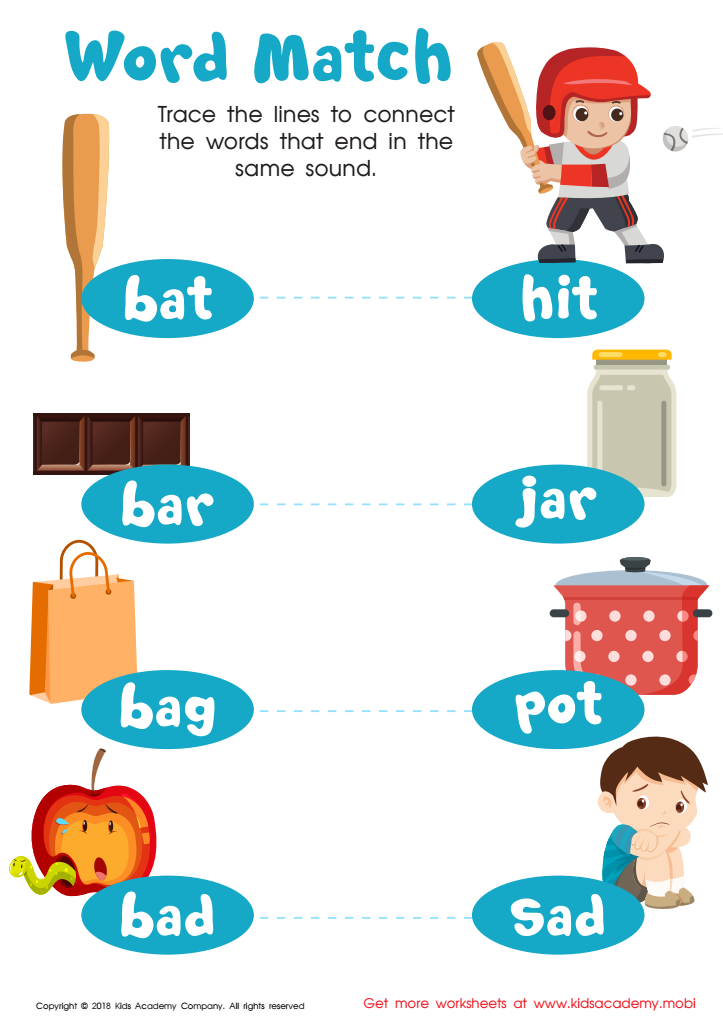

Word Match Reading Worksheet
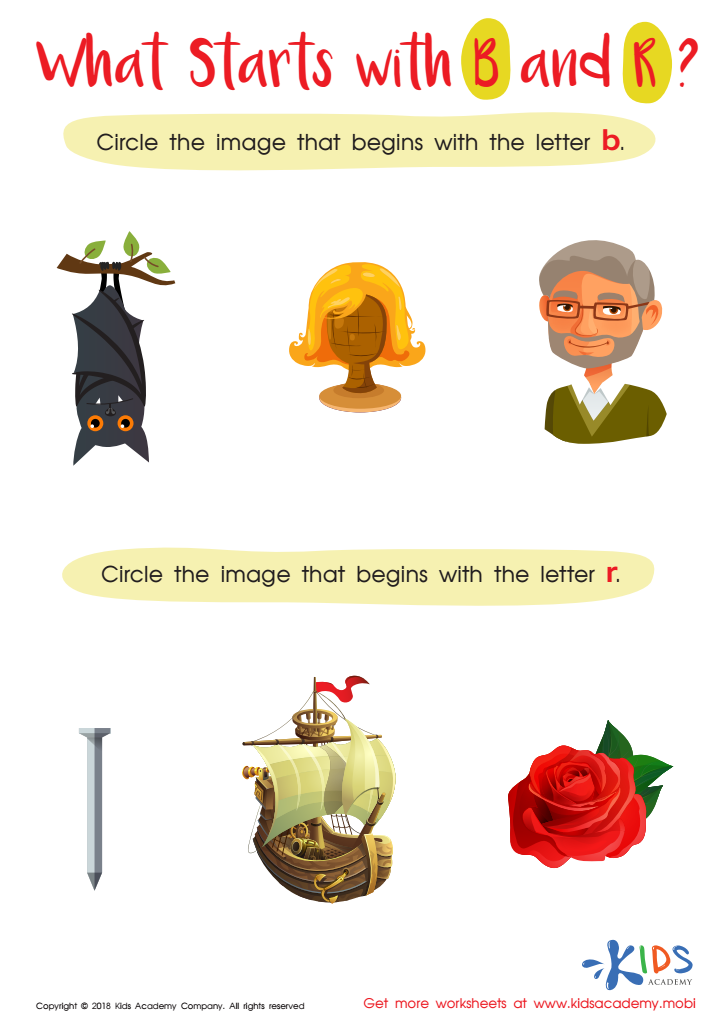

What Starts with B and R? Worksheet
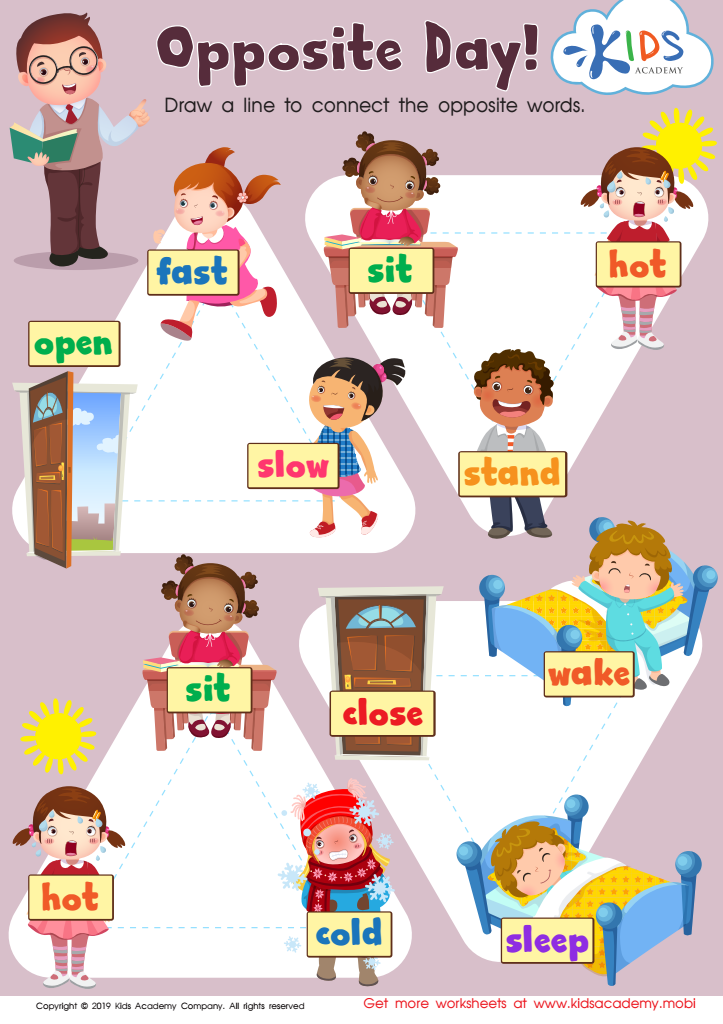

Opposite Day Worksheet
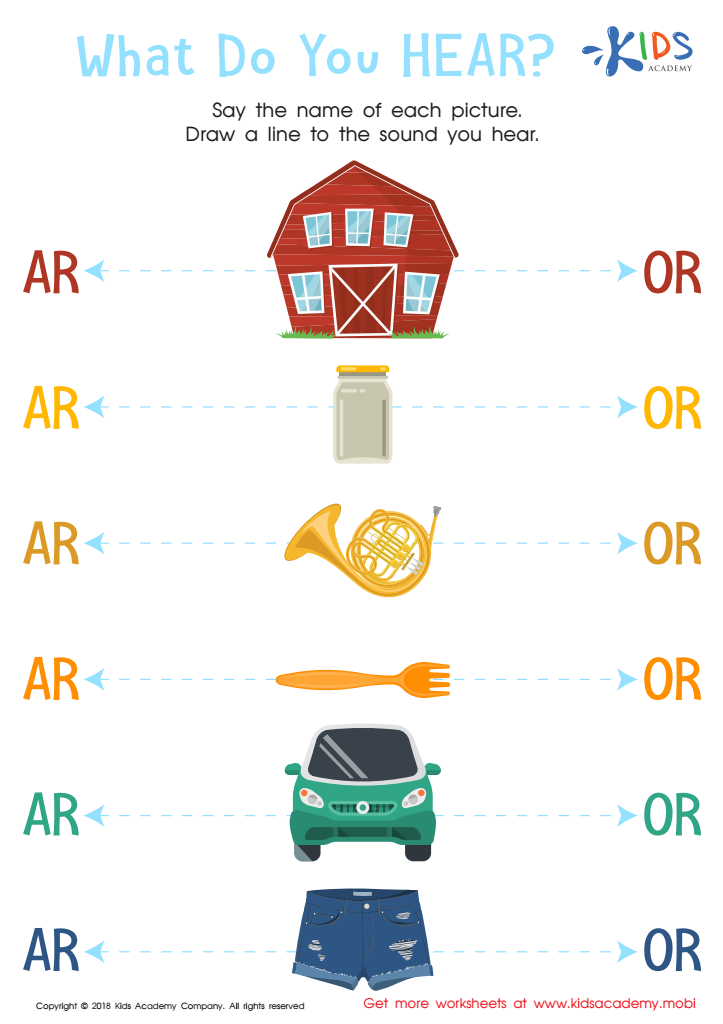

What do you hear Worksheet
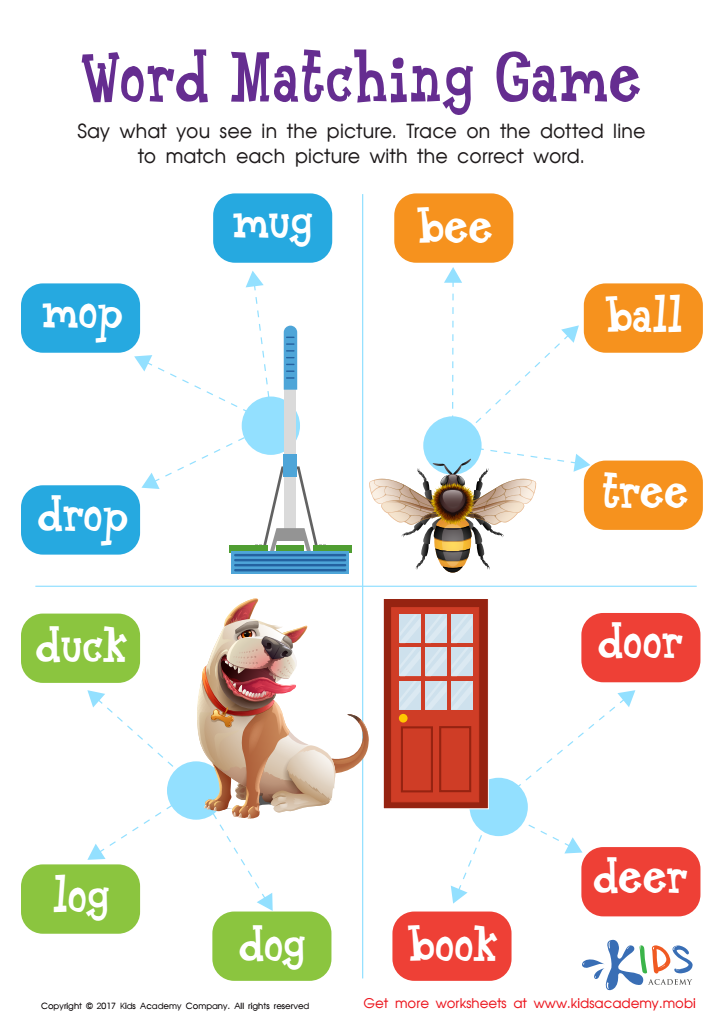

Word Matching Game Worksheet
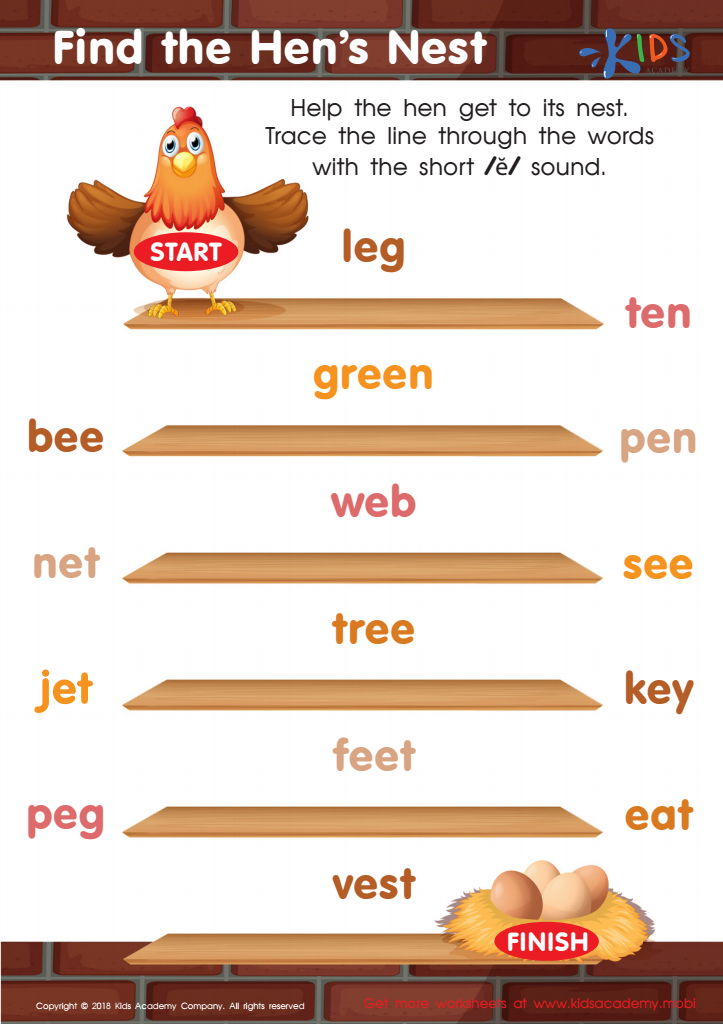

Find Hens Nest Reading Worksheet
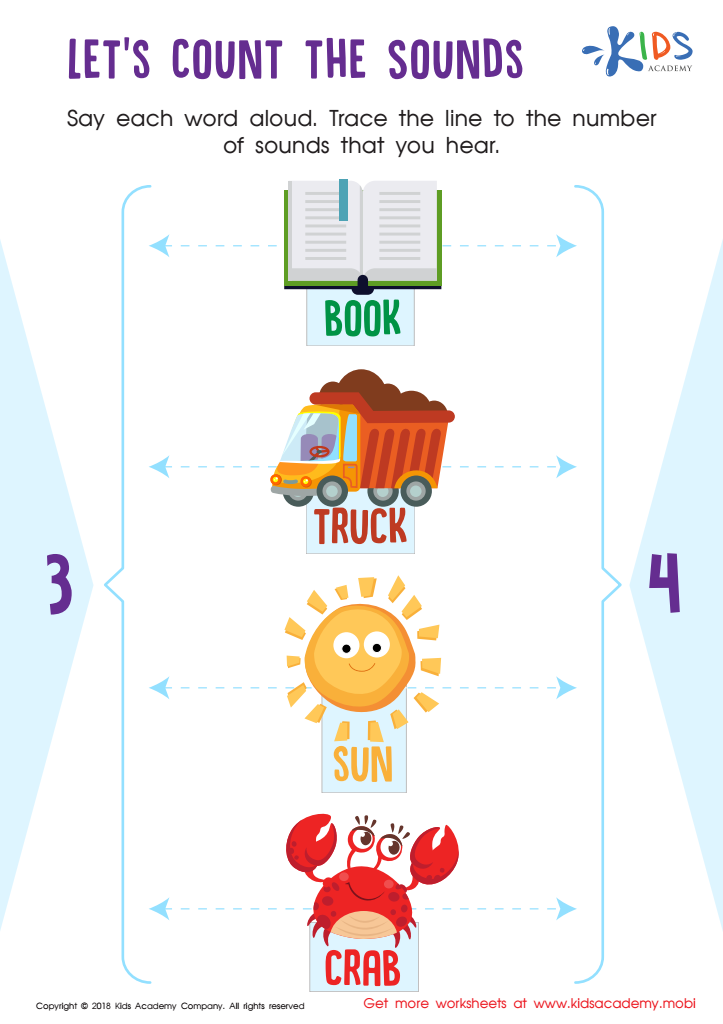

Let's Count the Sounds Worksheet
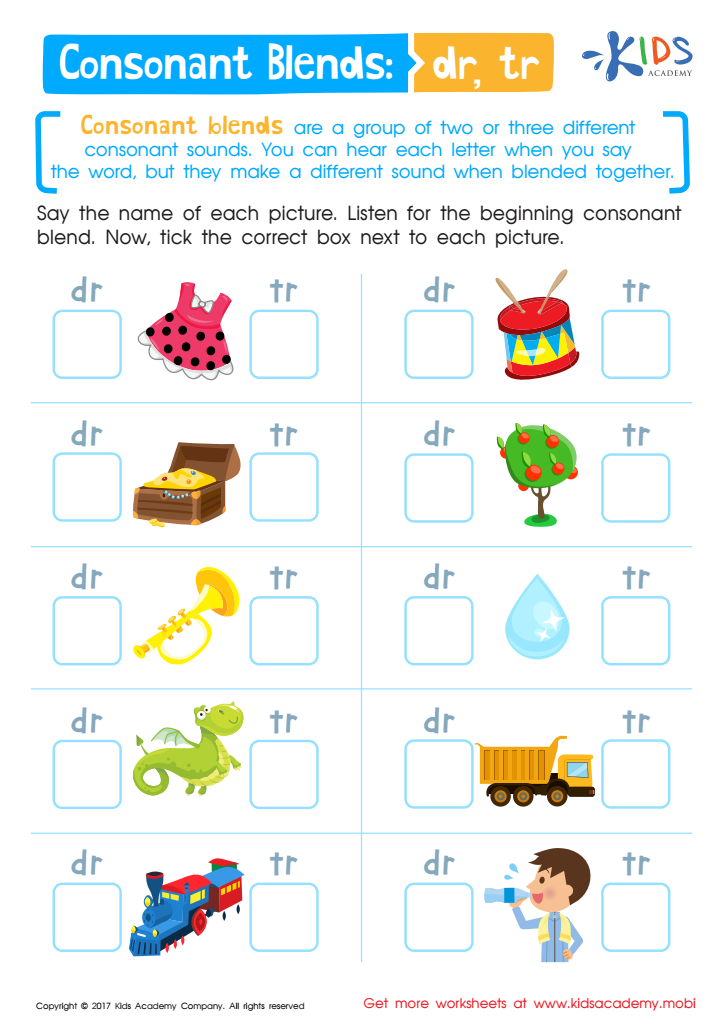

Consonant Blends: "Dr" and "Tr" Printable
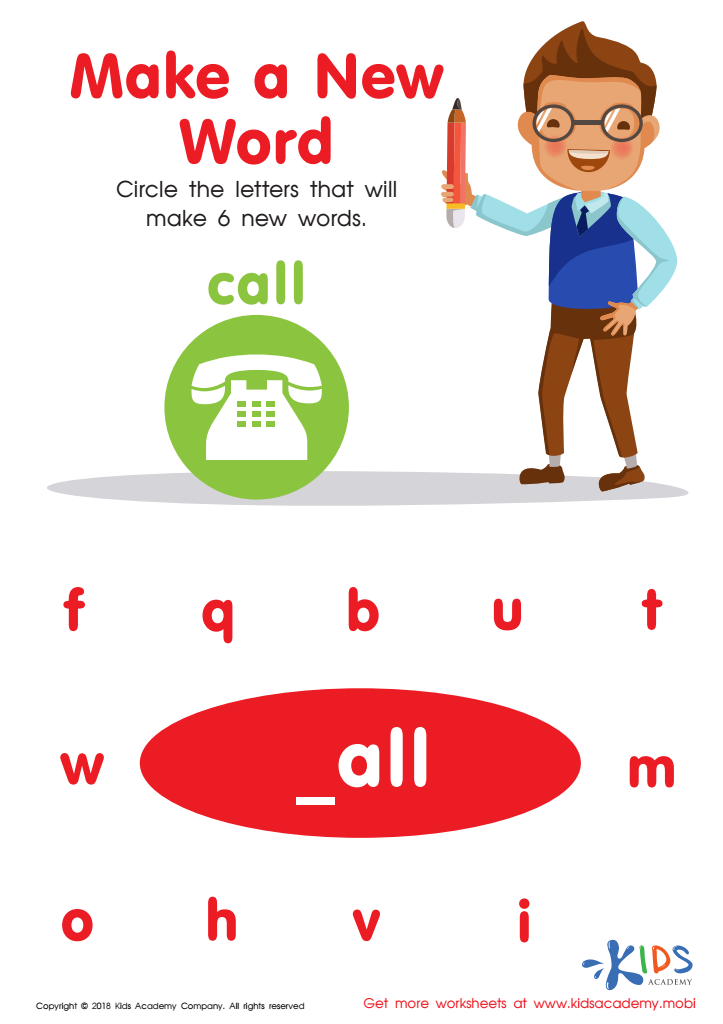

Make a New Word Worksheet
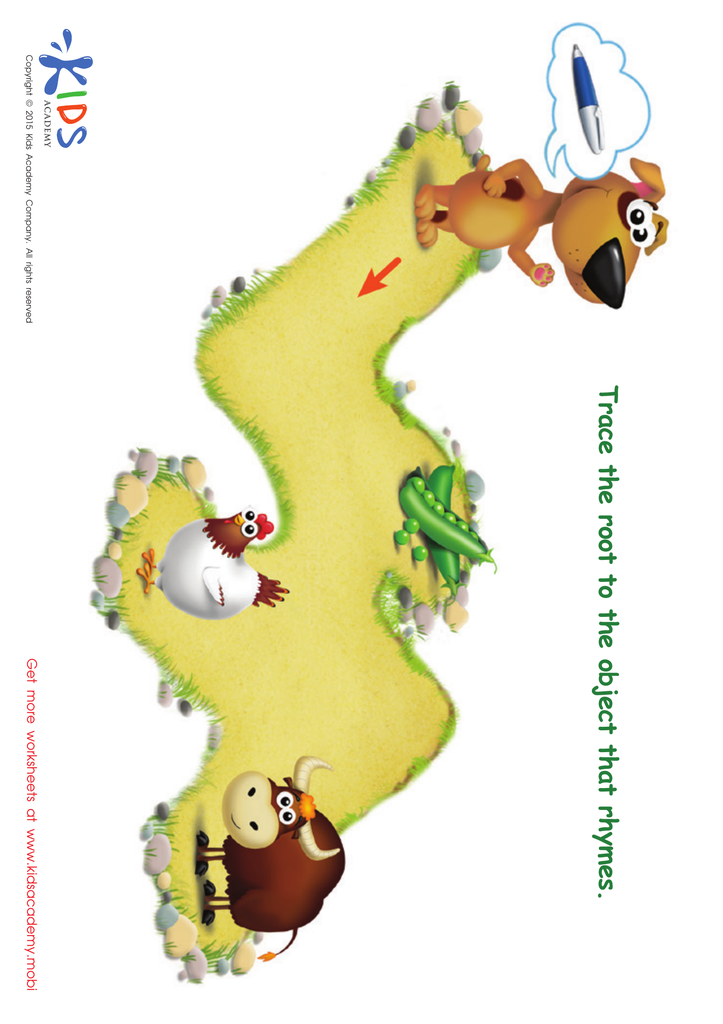

Pen Rhyming Words Worksheet
Cognitive Development Phonics is crucial for children aged 4-9 as it lays the foundation for literacy and overall cognitive skills. During these formative years, children are highly receptive to language acquisition and phonetic understanding. By engaging in phonics activities, they develop the ability to connect sounds with letters, which is essential for reading and writing.
Improvements in cognitive development are significant. Mastering phonics enhances a child’s ability to decode unfamiliar words, making reading less daunting and more enjoyable. This not only boosts their literacy skills but also nurtures confidence and fosters a love for reading, which can lead to lifelong learning.
Moreover, phonics contributes to children's cognitive skills, including memory, problem-solving, and critical thinking. Early exposure to structured phonics can enhance their ability to comprehend complex texts, thus preparing them for future academic challenges.
Teachers and parents play critical roles in supporting this development. By integrating fun and engaging phonics activities at home and in the classroom, they can create a rich learning environment. Ultimately, prioritizing Cognitive Development Phonics empowers children to succeed academically, socially, and emotionally, encouraging them to become independent learners who can navigate the world of literacy with confidence.
 Assign to My Students
Assign to My Students





















